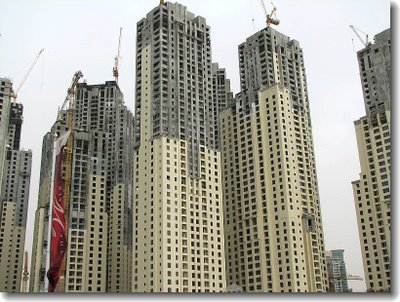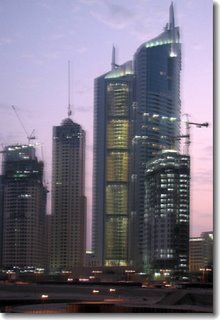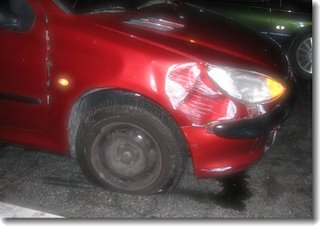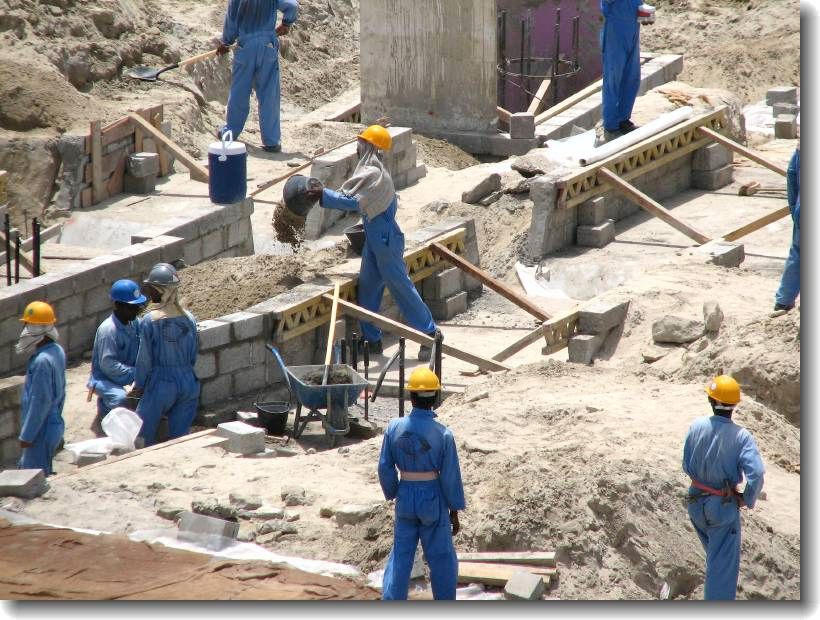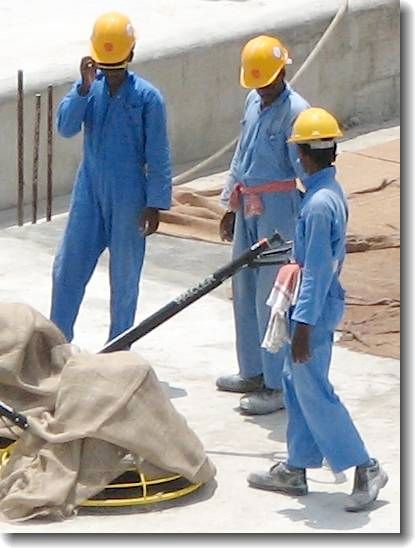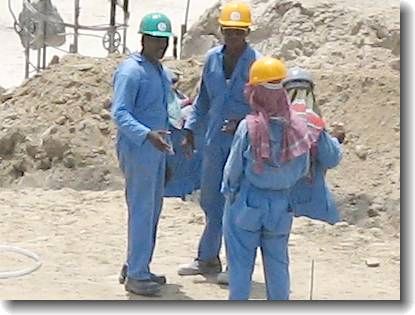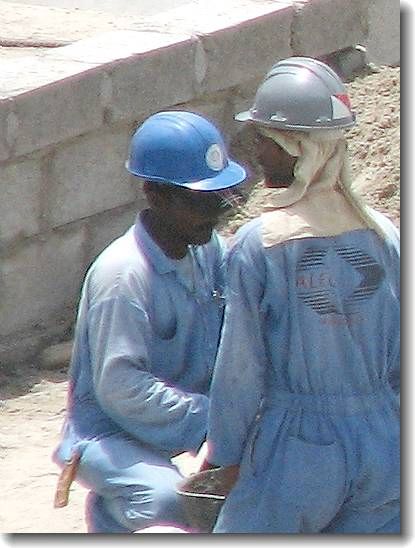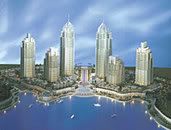What's Wrong With These Beautiful Pictures?
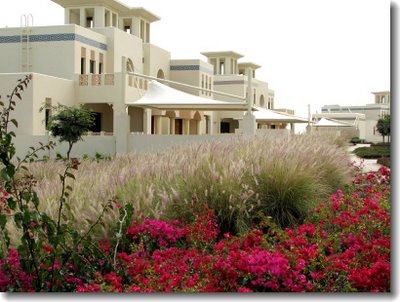
It looks like an idyllic villa community with lush gardens, beautiful homes, and city towers rising in the background. This is Nakheel's Garden View Villas. The project was mostly completed in fall 2003, at which point buyers promptly moved in.
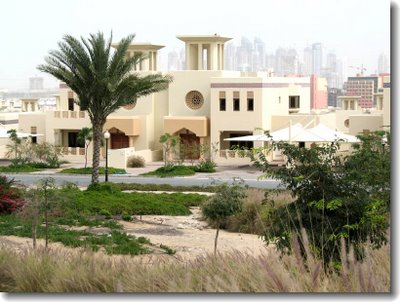
But, wait a minute... there's something wrong with both these pictures and the tranquil story they tell. It is mid-2006, almost 3 years since completion of the villas and they are in fact empty. Behind the facade is a ghost town.
The story goes that shortly after residents moved in in 2003 they found serious cracks in the walls. It was determined that there were structuaral problems serious enough to merit vacating all residents. Up till now, the villas remain empty, but with beautifully manicured gardens. The structures are essentially unlivable.
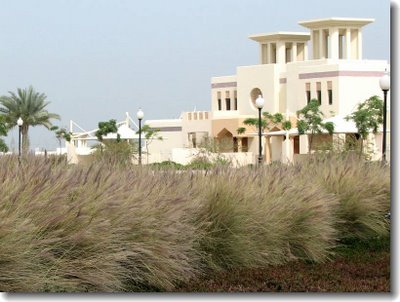
Why not repair or demolish?
This is the most obvious question to ask. Although homeowners were moved out over 2 and 1/2 years ago, one wonders if they have been compensated. Apparently there are legal and insurance matters that account for the villas being left as they are, albeit with lawns well-kept.
It is hard to imagine they would be demolished. These are low-rise villas, not high-rise towers. Why not shore up the defective walls and otherwise repair whatever defects there are?
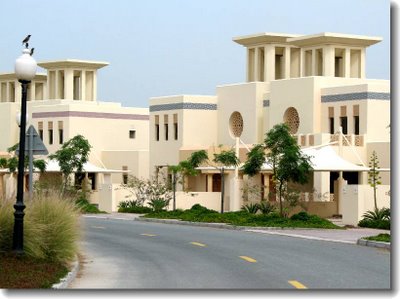
Opinion
The lesson of the Garden View Villas project goes beyond its tranquil streets. It raises questions about what developers are able to deliver and how they respond to problems. To Nakheel's credit they moved out the affected investors, but the failure of this project remains a well-kept secret. The picture on the outside is pretty, just as are all the glorious renditions of projects across the city and at sea. But it takes a certain amount of expertise and a focused commitment to deliver as promised on artfully rendered proposals.
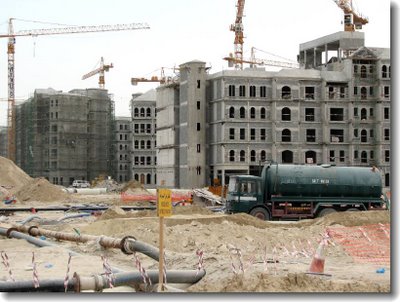
Nakheel's Discovery Gardens Apartments
Nakheel is one of the largest players in the market and they have perhaps the grandest visions. They have the resources to deliver, but do they really have the expertise and dedication required to do the job well? Few should doubt that they will deliver well on the Palm islands, even if delayed. These are their showpiece projects. But how well will they do on less noteworthy developments, like Discovery Grardens or International City?
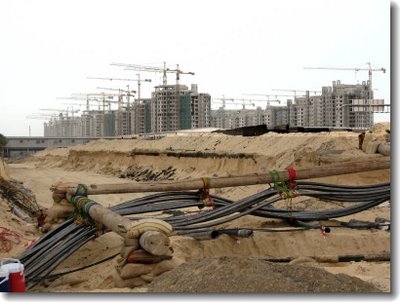
Construction at the trunk of Nakheel's Jumeirah Palm Island.
Emaar, as Nakheel's chief rival, has perhaps established a better track record. They have delivered already a few thousand villas. These were not without problems but they certainly weren't disasters. It has done even better with its showpiece projects, like the Dubai Marina waterway and Dubai Marina Phase 1 towers and villas. These projects assert that Emaar is able to deliver on the projects it values most. The same will probably be the case with the Burj Dubai, rising beyond 50 floors at present to eventually reach 160 or more.
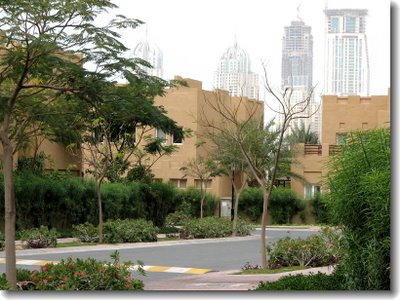
Emaar's Hatton Villas and Dubai Marina towers in the background.
But how will Emaar's less noteworthy projects fare? They struggle with the same issues that Nakheel does. Do they have the expertise and required level of dedication toward all of their projects, to be able to meet the high standards they advertise?
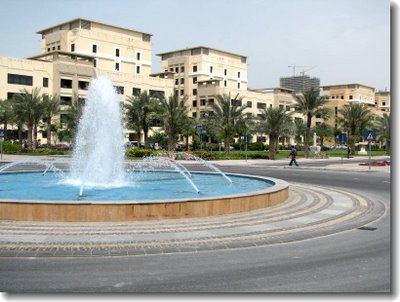
Emaar's The Greens, mostly a success story.
Similar questions arise with regard to smaller developers, with the added element that they may not have the financial and logistical resources that both Nakheel and Emaar have--as does also No. 3 player Dubai Holdings, responsible for Jumeirah Beach Residences and many Business Bay projects. Then there's Damac, a large private player, but one with relativley little experience in real estate development and a fair share of controversy. The verdict remains out on them.
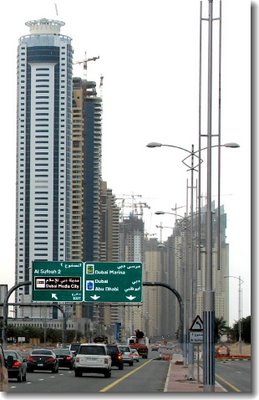 Dubai Marina Towers
Dubai Marina TowersDubai Marina has an interesting mix of projects under master-developer Emaar and a multitude of private developers, large and small. Will any of the smaller developers have problems similar to Nakheel's with their initial developments? Towers are a rather different beast from villas, requiring even more care and expertise. Ironically, to the benefit of investors, the smaller developers with less clout may be better positioned to deliver.
They have to be more concerned with the reputations they establish on their early projects, and are therefore likely to make a more concerted effort to do the job right. But then, there is still the question of expertise.
Go to DM Blog latest posts, Dubai Marina Communities or MAG 218 Community homepage.

